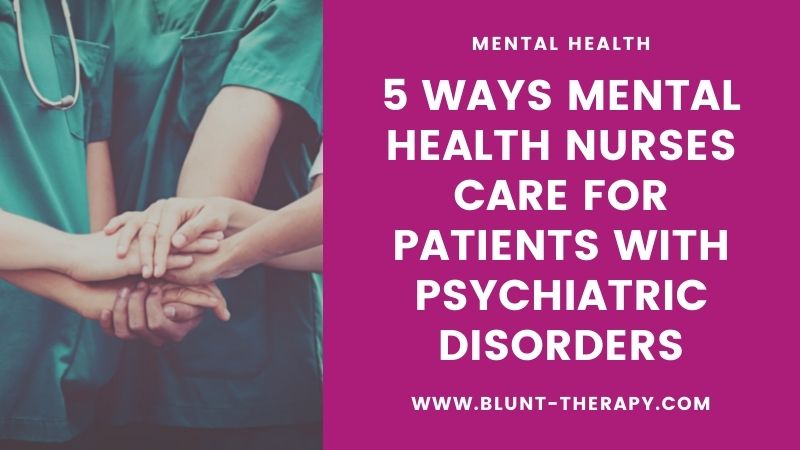Table of Contents
Affiliate link notice: As an affiliate of BetterHelp and other third-party vendors, We will receive compensation if you make a purchase using the links provided on this page. For more information, visit our disclosure page.
Last Updated on June 27, 2022 by Randy Withers, LCMHC
Paramedics make a difference in peoples’ lives every day. It’s an admirable career path, whether you’re currently working in the field or plan to one day. It’s also a career that comes with a few lesser-known challenges like EMS fatigue, stress and anxiety.
Here are five ways to cope with paramedic stress and fatigue so you don’t have to experience job-related burnout. These are simple things anyone can do to restore their peace of mind while building their energy. There are also great tips for maintaining your well-being after you’re back to feeling like yourself.

1. Make Self-Care A Priority
Most people deal with stress and fatigue in any career. It can happen while handling any of life’s challenges, so it’s never a sign of weakness. Your mind and body will need varying degrees of care during different career stages or your life. The most important thing is to take care of yourself.
Self-care habits can solve and prevent paramedic stress, anxiety and fatigue. You just have to try a few to find what works best for your particular symptoms.
First, determine which type of self-care you need most. You can pick habits that focus more on your mental or physical health. If you’re unsure, trying anything will still be better than living with the fatigue or anxiety on their own.
You can always borrow books from the local library to read about self-help topics. Numerous books on stress and exhaustion may help you learn more specific triggers that could cause your current challenges.
Investing in an essential oil diffuser can also make a significant difference while you’re at home. Lavender, chamomile and jasmine will fill the room with pleasant scents while reducing your daily anxiety through aromatherapy. It’s a budget-friendly way to immediately soothe your mind, especially when paired with a hot mug of chamomile tea.
Your self-care routine could also include helpful things like an evening walk around your neighbourhood, a hot bath or spending time on your favourite hobby. The goal is to find an activity that helps you release your stress and feel recharged.
2. Take Time for Yourself
Emergency responders give so much of their time to their co-workers and patients. It’s equally important to reserve time for yourself. Giving your energy to other people will leave you feeling empty and exhausted at the end of each day. It’s an unsustainable lifestyle that may have led to how you currently feel.
Begin by taking time for yourself each day. It can start with small segments, like reading for 15 minutes before bed. Drink your coffee on the porch for five minutes before leaving for your next shift. Take deep breaths on a work break in the middle of your day.
You can also look into your vacation hours. It’s crucial to take time off to reset and restore your energy. Your vacation could be a trip to the mountains or relaxing at a local spa. You don’t need to spend excessive amounts of money. Even a staycation will give you a break from your daily routine and help your mental health get back on track.
Self-isolation may also be an opportunity to reflect, but it can also be harmful. Many people in difficult situations deal with their stress or fatigue with addictive substances. Checking into a rehab facility that’s open 365 days each year will guarantee that you get the help you need to overcome your work-related stress and behavioral patterns.
Paramedic stress can result in numerous coping mechanisms like opioid abuse, drinking too heavily or having an unhealthy relationship with food. Taking time for yourself will give you space to recognize if any of these habits are prevalent in your life.
You’ll also have time to get the help you need so you don’t have to deal with anything alone anymore. Getting help is the best way to live a happy, healthy life and also provide the best care to your patients in a career that utilizes your greatest passions.
3. Talk to Someone
It’s all too tempting to grapple with exhaustion and anxiety alone. You might feel the need to push through the day because tomorrow could be better. Try talking with someone if you’ve been doing that for days, weeks, months or even years without improvement.
Discuss how you feel with your paramedic friends who can relate to your specific situation. Conversations also create opportunities to set healthy work boundaries related to your mental and emotional health. You could discuss when everyone needs to walk away for a quick break after a difficult call or which cases are more challenging to handle than others.
These conversations are essential in the emergency response field. A recent study found that fatigue affects all EMS workers and requires risk-management strategies. Helping each other find time to nap, access caffeine, work shorter shifts and check in with each other throughout the workday will help reduce the exhaustion that hurts your physical and mental health.
It’s also good to find a local therapist specializing in treating emergency responders. They’ll have experience working with patients who grappled with the same fatigue and stress levels. They can also point to career-specific tools to mitigate your symptoms based on what causes them.
For example, EMS fatigue and paramedic stress can come from a condition known as compassion fatigue (CF). This occurs when someone in an emergency medical services position gradually loses their ability to care as an emotional response to the trauma they encounter daily. A 2021 survey found that 48% of EMS personnel have CF, and one-third of those had considered suicide.
A therapist trained to recognize and respond to conditions like compassion fatigue will be much more helpful to EMS workers seeking mental health assistance. You’ll also find that they can assist with the anxiety and mental exhaustion related to losing patients and other traumatic experiences that happen while responding to calls.
4. Journal Your Thoughts
Paramedic stress builds like any other person’s. It will become overwhelming if there are no healthy venting mechanisms. Journaling is an easy way to cope with rising anxiety without changing your busy schedule or monthly budget.
Pick up a new notebook at an office supply store, online or local discount store. You can find one for a dollar and start venting your thoughts or emotions on paper. The physical act of writing everything down will make you feel better. You can also reflect on your entries to learn what causes you the most stress or if your mental health is improving due to other coping mechanisms you’re trying.
If you doubt your ability to keep a physical journal, try a guided journaling app that focuses on improving each user’s mental health. Apps come with prompts to steer your thoughts. Experiment with both methods to see what you prefer.
Combining the two methods is also helpful. The journaling app could provide daily prompts for reflection that lead to better entries in your physical journal. There’s no wrong way to record your stream of consciousness.
You could also combine your entries with therapy. Use them as conversational tools to address what’s currently affecting your thoughts or feelings. You’ll never walk into a session without something to discuss, which can happen no matter who’s getting therapy or why.
5. Restructure Your Diet
You may unknowingly exacerbate your fatigue by sticking with a poor diet. A lack of nutrition will only cause your energy to plummet, along with mental and emotional processing.
Meals high in processed foods may overload your body with saturated fats and too many calories. Your blood sugar will drop after each meal or snack, resulting in intensified exhaustion.
It’s also crucial to get enough daily calories to fuel your body. The average adult needs around 2,000 calories each day to maintain their metabolic processes, but you can also use a verified equation to calculate your specific calorie requirements.
Healthier foods can also decrease paramedic stress. Australian researchers found that participants who ate more fruits and vegetables than processed foods significantly reduced their anxiety while dealing with the same environmental stressors.
Figuring out ways to eat well-rounded, balanced meals and snacks while working your typical shifts may be challenging, but it’s not impossible. Bring food from home that you prep once or twice each week. Choose the healthier menu options when your team stops for fast-food or orders takeout from a restaurant.
Restructuring your diet only requires making a few different decisions than you typically would. It’s an excellent way to start unpacking the fatigue, stress and anxiety you feel daily without disrupting your schedule.
Final Thoughts on Paramedic Stress
These are a few helpful ways to overcome stress and fatigue as a paramedic. Both problems will continue to be influencing factors in any career, and trying new coping strategies will lead to long-term improvements.
Make space to work on yourself, talk with others or meet with a mental health professional. Your time and efforts won’t be a waste because you’re helping yourself and all your future patients.









